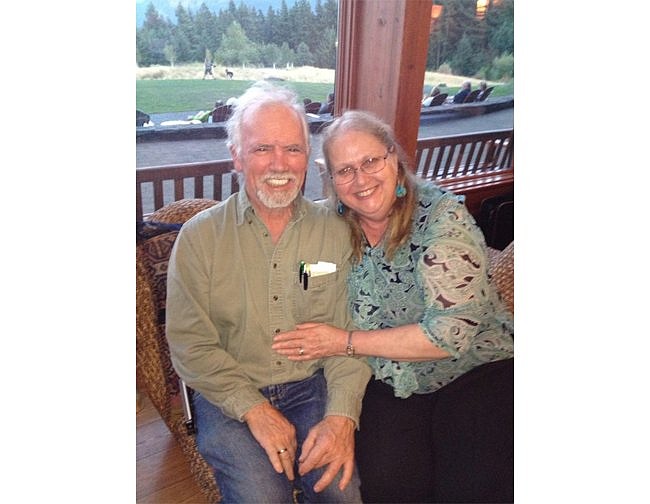Ethics in Dating
December 1, 2014 at 6:00 a.m.
Most older adults can tell at least a few horror stories about how they have been treated badly in dating relationships. How many of us take the time to consider whether our own behavior is ethical? In other words, are you treating others at least as well as you would like them to treat you?
When asked what characteristics make for a great partner, nearly everyone mentions "honesty." Being lied to is usually a very painful experience, and is often the undoing of a relationship. Yet it is not so easy to be honest ourselves. Researcher Bella DePaolo stated that "romantic relationships are hotbeds for serious lies," with the most serious ones being about infidelity. Decades of psychological research have shown that people tell lies on a daily basis, usually to present themselves in a better light. (Newsflash: College students lie to their mothers. A lot.) However, the closer and more intimate the relationship, the less likely people are to tell those types of lies. As we get more comfortable with people in our lives, we usually can reveal our vulnerability and mistakes more readily.
Think about your own level of truthfulness in dating relationships. You don't have to tell every sordid detail about your life on the first date, but if your goal is a lasting, loving relationship, you can't build that on lies. If a dating partner asks a question that you don't feel comfortable answering and are tempted to answer with a lie, you can simply say, "That's something I'd like to wait to talk about until we know each other better." Maintaining good boundaries, those that are appropriate to the stage of the relationship or to your own comfort level, is not the same as being untruthful. You don't have to reveal your weight, your status as a sexual abuse survivor, or the details of your divorce until and unless you are ready to do so.
If you are going to be sexually active with a person, you have an ethical responsibility to be honest about sexual health issues. If you have a sexually transmitted infection or are HIV-positive, a potential sex partner has the right to know. If you claim to be monogamous but are having sex on the side, you may be endangering your partner's health or life as well as your relationship. These are basic issues without much room for debate.
When you are considering a committed relationship, you have to be clear and accurate about those elements that determine your suitability for each other. If you are getting close to the point of moving in together, for example, your partner should know if you plan to move your ailing mother in with you soon, if your teenager has a history of suicide attempts, or if you compulsively alphabetize the spices in your kitchen cabinet. Don't avoid talking about difficult situations just because you are afraid they might be deal-breakers.
Truth is often complicated, and you may need time or help to sort it out for yourself before you try to share it with someone else. We all develop narratives about our own lives, and usually try to preserve our self-respect as we do so. However, if you behaved badly in a previous relationship, you will want to do some reflection (and possibly get some counseling) to figure out why that happened and to ensure that you won't make the same mistakes in the future. If you connect deeply with a partner and want to create a healthy relationship together, you should be able to tell the truth about your past and what you are doing to handle things differently now.
At the appropriate time, you will want to tell a potential partner if you have any serious medical conditions, a history of substance abuse, or mental health problems. If someone who is important in your life (a child or a sibling, for example) has any of these issues, your partner should know. Similarly, if the IRS is hounding you for back taxes, you are deeply in debt, or you have a gambling problem, tell your partner before your lives become financially entangled.
Fairness is another ethical issue. A relationship should be balanced. It may not be 50-50 on one issue or at one point in time, but if you know in your heart that you are taking advantage of your partner in some way, cut it out. In the long run, your partner will become resentful and you will lose respect for yourself. Monitor yourself so that you don't take advantage of a partner's giving nature or desire to keep the relationship going.
We often get what we give. If you give honesty, fairness, and true consideration for your partner's needs, you have a better chance of receiving those wonderful elements of a great relationship from a dating partner. At the very least, you will be able to move into the future with a clear conscience.
Northwest authors Jennifer Y. Levy-Peck, PhD, a psychologist, and her husband Charles Peck are write a weekly column on midlife relationships. They are working on a new book, "Magic at Midlife: Your Relationship Roadmap for Romance After 40."
Previous Magic at Midlife Columns:
Friends and Lovers: A Balancing Act
The Power of Small Caring Behaviors
Reimagining Your Life Together
Memory Loss and the Midlife Couple
Money - One Pot or Separate Accounts?
Conversations About Death for Midlife Couples
The Couple That Laughs Together, Stays Together
Vacation Time! Leave Your Baggage at Home
Your Place or Mine? Moving In Together
How to Help Your Partner Calm Down
Having the “Senior Safer Sex” Conversation





